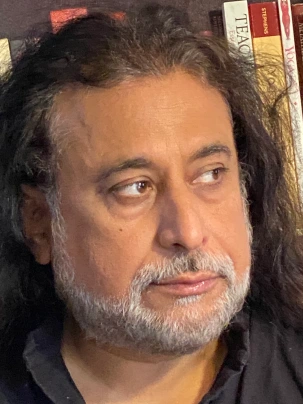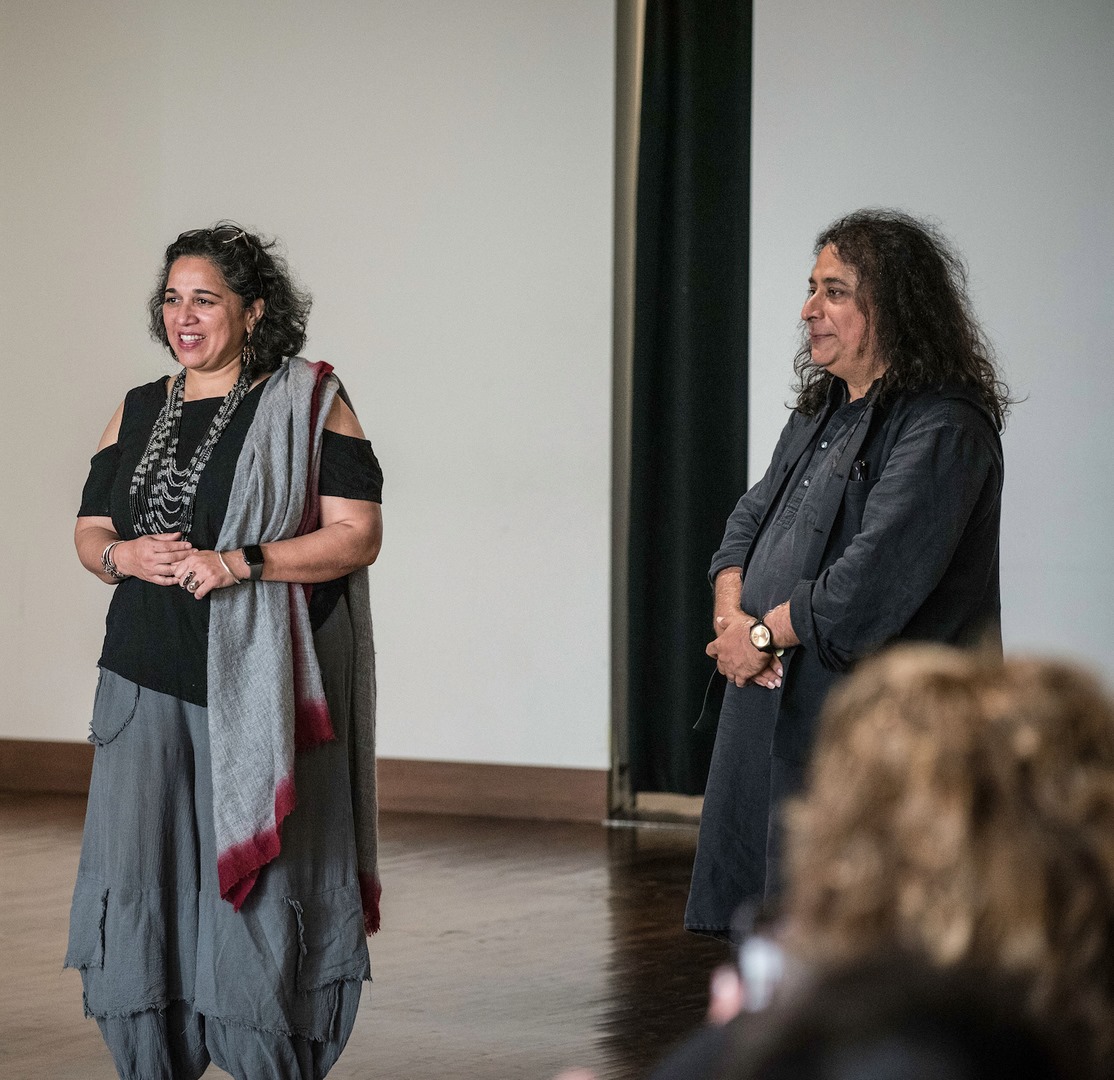(September 14, 2023) In a dazzling debut on the U.S. stage, “Returning to Haifa,” a play adapted from the 1969 novella by the late Palestinian author and activist Ghassan Kanafani, took the audience by storm, earning thunderous standing ovations and critical acclaim. At the helm of this theatrical triumph stands Dipankar Mukherjee, the visionary Indian American director.

As the co-founder and artistic director of the renowned Pangea World Theater, a Minneapolis-based international hub for art and dialogue, Dipankar’s creative journey is deeply intertwined with his unwavering commitment to social justice, equity, and profound spirituality. These pillars, together with his keen political insights, serve as the cornerstone of his artistic endeavors. With an impressive directorial portfolio spanning across India, England, Canada, and the United States, Dipankar Mukherjee is not only a luminary in the world of theater but also a recipient of the esteemed Humphrey Institute Fellowship to Salzburg, solidifying his impact on the global stage. “I am truly committed to telling stories from multiple perspectives and highlighting those voices who have been unjustly vilified, marginalised, displaced, erased, or ignored,” said the director, who is also a Ford Foundation delegate to India and Lebanon.
Artistic brilliance
Born in Kolkata (Calcutta) the director has a deep connection to his historic dramaturgical roots that extend thousands of years back. After finishing his education, Dipankar started working with various dancers and choreographers in India, the director expanded his wings to work in USA, Canada, and England.
“I’ve had the privilege of collaborating with talented dancers to craft cross-cultural performances, drawing upon my expertise in Kalaripayattu, an ancient Indian martial arts discipline. Throughout my journey, I’ve had the opportunity to collaborate with skilled choreographers/dancers hailing from India, the United States, and Canada, assuming the role of a director in these creative partnerships. My artistic vision has evolved organically, shaped by a steadfast dedication to principles of social justice, equity, and profound spirituality. These foundational values, intertwined with a keen sensitivity to contemporary political currents, serve as the guiding pillars of my creative work,” the director said in an interview.
Quite early in his career, the Global Indian won the prestigious Twin Cities International Citizens Award from the Cities of Minneapolis and St. Paul for contributions in the area of human rights and international cooperation. It was around this time in 1995 that he was also involved in establishing the Pangea World Theater, along with his wife Meena Natarajan, who is also quite a well-known artist. “Our theater is shaped by the stories forged by artists who dared to speak their truth and blessed by our elders from multiple communities. We renew our commitment to the artists who are architects of our collective imagination and whose courage has been a part of the skein that created Pangea,” the director said during an interview, adding, “We commit to a world of equity for the next 25 years and beyond.”
The world’s a stage
Eventually, Pangea evolved to become not just another theatre in America, but a platform for suppressed and unheard voices. “I always wonder why The Ordway, The Guthrie, and other famous Drama centers all over America would invite artists the world over including England, but they would never reach out to provide a helping hand to the struggling Native American artists, the Latina, the LGBTQ artists who are trying to change this world one street theater at a time, one play in the park at a time,” the director shared.

A scene from the play Returning to Haifa
And this is precisely what inspired their commitment to offering a nurturing artistic haven for those who needed it most. Pangea’s extensive repertoire brims with creative expressions from artists of diverse backgrounds: people of color, Native Americans, African Americans, immigrant artists, and members of the LGBTQ community, all working towards positive change. In a recent conversation, the director emphasized the significance of this choice, both in dismantling systemic racism and in fostering more compassionate interactions among us all.
Giving back to the community
Amidst the endeavour of creating a globally renowned drama company, the theatre director remained deeply connected to his Indian roots. Pangea collaborates closely with local Indian organisations, including the India Association of Minnesota and the Hindu Temple. These partnerships have given rise to intriguing dynamics and interactions within the community. “To leave a different world for the next generation and be able to face them with integrity, we must take accountability. We must know our own history and acknowledge the debt we, as immigrants from India, owe to the Civil Rights movement as it’s because of this that we have the privilege of being on this land,” shared the director.
Throughout the years, the director has partnered with various organisations, including SEWA, to shed light on pressing issues within the community, particularly domestic violence awareness. In 2017, the theatre produced a powerful play titled ‘5 Weeks,’ a collaborative effort involving individuals from the local South Asian community. This production delved into the multifaceted narratives that constitute the often-overlooked history of the Partition of India in 1947. It eloquently portrayed stories of heartbreak, shattered identities, yearning, and memories of home during the turbulent period following the establishment of India and Pakistan’s borders.

Dipankar Mukherjee and Meena Natarajan of Pangea World Theater
“We have also organised gatherings to raise our voice and take strong action against islamophobia, homophobia, racist attitudes, colorism, patriarchy, and domestic violence within our communities. Reaching out and standing in solidarity with the Black community and indigenous community is our duty and understanding that we are a part of this ecosystem called America,” the director said.
- Follow Dipankar Mukherjee on LinkedIn



